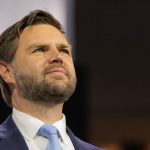The phone rang with what most musicians would consider a career-breaking nightmare—perform the fiendishly difficult Sibelius Violin Concerto with the Philadelphia Orchestra in less than 24 hours. No rehearsal. No preparation time. The soloist had canceled, and they needed someone immediately. Most would panic or decline. Grammy-nominated Cho-Liang Lin's response came without hesitation: "I'll stop practicing the Beethoven concerto for now. I'll pick up the Sibelius. I'll be ready in 24 hours."
This extraordinary moment reveals what separates exceptional performers from the merely talented—whether on concert stages or in startup boardrooms. The capacity to deliver excellence under impossible constraints represents the ultimate entrepreneurial superpower, one that Lin has mastered throughout his remarkable career spanning decades as a world-renowned violinist, recording artist, and educator. His approach to high-pressure performance offers profound wisdom for founders facing their own versions of the 24-hour concert challenge.
Lin's story begins in Taiwan, where he started violin at age five after becoming fascinated with a neighbor's playing. His talent quickly became apparent as he won every competition available in his home country. Eventually, his path led him to study at the prestigious Juilliard School under-celebrated teacher Dorothy DeLay, launching a career that would include performances with the world's finest orchestras, numerous recordings, and teaching positions at both Juilliard and Rice University's Shepherd School of Music. Throughout this journey, Lin developed an extraordinary ability to perform under pressure—a skill that reached its apex in that fateful Philadelphia Orchestra moment.
The Invisible Infrastructure of Overnight Success
The curtain rises, the audience falls silent, and magic seemingly appears from nowhere—except it never does. When Cho-Liang Lin stepped onto that Philadelphia Orchestra stage with minimal notice, he drew upon decades of disciplined preparation invisible to anyone watching. "I took it very seriously because the Philadelphia Orchestra has always been my great hero of an orchestra. So I was exhilarated when I was on stage. I couldn't believe the sound that was coming from behind me," he recalls.
This reality shatters the entrepreneurial myth of spontaneous brilliance. The startup founder who pivots instantly to capture an unexpected market opportunity relies on accumulated knowledge built through consistent effort long before opportunity knocked. Lin had invested thousands of hours mastering fundamental techniques that enabled him to rapidly prepare the Sibelius concerto. Similarly, entrepreneurs must develop core competencies that allow them to recognize and respond to opportunities with remarkable speed.
Lin's preparation began decades earlier with rigorous practice routines established in childhood. He describes how different his focused approach was from today's distracted practice: "When I was their age, there was nothing to distract me. There was no phone, no cell phone, not even email or not even fax. Once I walk into a practice room, I do nothing except practice." This single-minded dedication created the foundation for his later achievements—a lesson entrepreneurs can apply by cultivating deep expertise in their core business functions rather than superficial knowledge across many areas.
These pivotal moments carry enormous consequences. Lin understands this reality with sobering clarity: "When you go and make a debut with an orchestra, you only have one chance if you blow it, that will never engage you. And if you blow it more than once, then word will get around that you're not so good after all. And then that's the end." This mirrors the entrepreneurial landscape perfectly, where first impressions with investors, partners, and customers often determine whether a second chance materializes. How founders handle make-or-break moments separates sustainable success from painful might-have-beens.
Necessary Confidence That Powers Performance
Cho-Liang Lin's technical mastery of his Stradivarius violin represents only half the equation—his psychological approach proves equally crucial. He speaks candidly about the essential mindset required when facing career-defining moments: "When you walk on stage, there has to be a sense of self-assurance. You can call it cockiness if you want, but the thing, if you're not at all sure that you can do it under immense pressure, one will wilt, and that's not good."
This self-assured mindset represents a crucial entrepreneurial quality often misunderstood. It transcends mere arrogance—it embodies the carefully cultivated self-belief that allows innovators to function under conditions that would paralyze most people. Entrepreneurs must project authentic confidence grounded in preparation rather than bravado when launching a product, pitching to investors, or navigating a business crisis.
His career trajectory demonstrates how this confidence becomes a competitive advantage. After arriving in New York at age 15 to study at Juilliard, Lin rapidly established himself as a concert violinist. By 21, Cho-Liang Lin was performing over 100 concerts annually and had secured a recording contract with CBS Masterworks (now Sony Classical). This meteoric rise didn't happen through talent alone—it required the psychological fortitude to deliver consistently excellent performances while facing relentless scrutiny from critics, conductors, and audiences.
This confidence develops through confronting challenges repeatedly. "I don't mean to say that I was feeling very nonchalant about it, not at all." Lin admits to normal human reactions to pressure—"I got nervous before my first Carnegie Hall recital. I didn't sleep a whole lot for two weeks." Yet he frames this tension productively: "But I welcomed it because I knew that I could do it if I really practice and I could bear down on the delivery system." Entrepreneurs can take heart knowing that nervousness indicates normal human response to pressure—a natural reaction that can transform into heightened focus and performance.
Focused Efficiency Beats Distracted Effort Every Time
Our attention-fractured business environment makes Cho-Liang Lin's emphasis on focused practice particularly valuable. When teaching his students, he insists: "If you do quality practicing for one hour, that's better than two hours of wandering around, like texting somebody three minutes and then practice another five minutes and then back to texting three minutes, that's pretty useless."
This principle applies perfectly to product development, strategy formulation, and virtually every aspect of building a business. The entrepreneur who dedicates three deeply focused hours to solving a core problem often outperforms competitors who put in twelve hours of distracted effort spread across too many priorities. Within startup environments where resources remain perpetually constrained, this focused efficiency becomes essential to survival.
Lin observes how the current generation faces unprecedented distractions: "Nowadays, it's really incredible. I find students very easily distracted. There's so many things out there on the internet, whether it's YouTube, texting, reading up on whatever gossip they wish to catch up." The ability to maintain concentration on what truly matters amid a sea of digital noise has become a genuine competitive advantage in modern business.
Success Reimagined Beyond Traditional Paths
Cho-Liang Lin's balanced perspective on success offers perhaps his most nuanced lesson. While his career followed a traditional path to elite classical performance, he demonstrates remarkable wisdom recognizing that success takes many forms—something entrepreneurs must embrace when navigating uncertain markets.
He shares a revealing story about a talented student who ultimately chose banking over music: "I don't mind that you quit the violin. You could always pick the violin up and play in an amateur orchestra. That's a lot of fun. And you're certainly good enough for that. But now if you become a very successful banker, you can do a lot of good in the music world." This adaptable vision of success—focusing on impact rather than rigid adherence to predetermined paths—captures the entrepreneurial mindset needed in rapidly evolving industries.
What Lin teaches about collaboration applies equally to building effective teams: "Regardless what your career path, I hope you learn how to work with other people. You are in an orchestra and you have to play well in order to support others, but you're not always the star." This balanced perspective on individual excellence within collaborative contexts reflects the reality of successful entrepreneurship, where even visionary founders must build and empower teams to achieve scale.
Excellence Within Constraints
Cho-Liang Lin's remarkable career offers entrepreneurs a powerful framework for excellence within constraints—delivering extraordinary performance not when conditions seem ideal, but when opportunity presents itself on its own unforgiving timeline. His ability to step onto classical music's most prestigious stages with minimal preparation time embodies the entrepreneurial imperative to balance thoroughness with timeliness.
The startup founder facing an unexpected investor meeting, a sudden market shift, or a competitor's stumble creating an opening can learn much from Lin's approach. Excellence emerges from focused commitment to delivering your absolute best within whatever constraints you face.
His Philadelphia Orchestra performance demonstrates how preparation goes beyond the immediate task—it builds capabilities allowing you to rise to seemingly impossible challenges with the foundation you've already established. The work entrepreneurs do today may prepare them for opportunities they cannot yet imagine—ones that might arrive with less than 24 hours' notice, demanding everything they've learned along the way.









